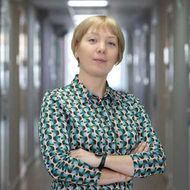‘We Have Always Loved You, Sakhalin’: Research Expedition Studies Sociocultural Anthropology of Miners' Working Life in the USSR
Researchers from the School of Foreign Languages and the Group for Historical Research, together with students of the History programme at the HSE University campus in Perm, have come back from an expedition to Sakhalin Island, where they studied Soviet industrial culture and the working life of miners. The expedition participants shared their impressions of their ‘immersion into the past’ and the extraordinary landscapes of the island with the HSE News Service.
During the 10-day expedition called ‘The Sociocultural Anthropology of Miners' Working-Life in the USSR’, researchers and students conducted interviews with veterans of the mines in the Sakhalin Region and studied photographs and other objects of historical heritage in museums and archives.
The Sakhalin Region was chosen because it stands out in terms of working conditions in mines, mining techniques and technology, specifics of staff formation, the historical context in which companies were founded, the cultural context of nearby settlements, and ethnocultural perspective.
The expedition route ran along the border region of the country, which made it possible to collect information about the miners' culture of the Soviet mines.
The expedition project was conceived by Lilia Panteleeva (expedition leader), Ekaterina Balezina, and Aleksandra Salatova—participants of the HSE University Russian Postdoctoral Fellowship Programme.

Lilia Panteleeva, Research Fellow at the School of Foreign Languages, HSE University in Perm
The expedition focused on collecting anthropological data on the Soviet culture of miners in industrial areas with unique ethnocultural history, natural features, and organisational and technological structures. This topic logically fits in with the academic work of the School of Foreign Languages, extending the range of its projects in regional culture research.
The anthropological study of the Soviet mining industry was conducted in the Sakhalin Region to look at how the nuances of miner culture are influenced by a variety of work factors. The region is notable for its specificity in terms of working conditions in the mines, mining techniques and technology, the specificity of staff formation, the historical context in which companies were founded and, importantly, ethnocultural perspectives.
The expedition project was conceived by the HSE University Russian Postdoctoral Fellowship Programme. It took more than six months to prepare for the project, but the work goes on even after the trip—the collected material is being deciphered and systematised. The basis of a future corpus survey is being formed.
During the trip, we managed to record more than 30 interviews totalling over 40 hours in length. The interviewees were current employees of mining enterprises and veterans of the coal industry, as well as their family members. The students worked with sources in five museums and archives and visited thematic exhibitions and memorials dedicated to miners and the history of Sakhalin.

Alexandra Salatova, Research Fellow at the Group for Historical Research, the Laboratory for Interdisciplinary Empirical Studies (LINES), HSE University in Perm
The expedition to Sakhalin to study miners' culture was conceived as early as last autumn.
The entire route of our expedition was focused on the central and southern coal mining areas. The northern part of the island was not covered. Sakhalin is a honeypot for researchers. We hope it will someday be possible to cover the whole island and collect a complete anthropology of miners' working life in the region.

Ekaterina Balezina, Research Fellow at the School of Foreign Languages, HSE University in Perm
The anthropology of professions is a fairly new research area, and the culture of miners of the Sakhalin Region is an understudied phenomenon, so our expedition was exploratory in nature. The territorial specificity and historical features of Sakhalin Island, such as limited territory, the presence of intercultural and interethnic communications (in particular active interaction at workplace of representatives of Russian and Korean cultures) allowed us to ‘grasp’ a unique professional experience of miners of the Soviet and post-Soviet periods.
The data we received helped us to dive into the history of Sakhalin, to study the features of the miners’ way of life and the mining culture of this territory, and to raise methodological questions on the specificity of anthropological research of the profession. That will allow us to conduct similar research on other territories and other professions in the future.
Students of the History programme actively participated in the expedition. They learned how to analyse anthropological data and conduct anthropological interviews, study cultural phenomena using existing approaches and methods in sociocultural anthropology, work in teams, etc.
Alexander Glushkov, Academic Supervisor of the History programme, HSE University in Perm
The main aim of the expedition was to collect anthropological and documentary material about a profession that is now virtually extinct on Sakhalin. In their interviews, students identified miners' identities, 'uncovered' layers of miners' folklore, and revealed local features of the miners' working life in the island's communities.
We were able to collect quite a lot of material in a very short time, but the expedition to Sakhalin was primarily about developing skills, the ability to network and look for compromises when working in a team, and to unite for a common goal. I have a feeling that for many of the participants, the expedition will be one of the highlights of their student life.
Maria Andriyanova, fourth-year student in the History programme
I am not going to lie to you—my decision to take part in this expedition was influenced in many ways by the prospect of flying to the other end of the country, experiencing a different culture, and seeing Sakhalin’s landscapes. The nature was truly stunning, with hills all around and the coast only a stone's throw away.
Of course, I have gained new experience of conducting interviews. We met very open and sociable people; each respondent wanted to share their story, and others were eager to help us find interviewees, create comfortable conditions for us, and provide necessary materials.
Daria Burkovskaya, fourth-year student in the History programme
I was a bit afraid at first because this was a completely unfamiliar place and I didn’t know anything about miners' culture or way of life. I didn’t have a clear idea of how our work would be organised, because, again, I’d had no such experience before. However, this fear was nothing compared to the thought that we were going to Sakhalin. I was excited about the opportunity to visit the other side of Russia.
My colleagues and I got involved very quickly, even though we were very tired after the long flight. We were actively communicating with respondents from the first day. During the expedition, I gained invaluable experience of conducting interviews and working in an unusual environment. I think this experience will definitely come in handy in my future professional activities.
I would say that the expedition was way beyond all our expectations. We got acquainted very closely with mining culture—we even learned some professional slang words—and we heard interesting stories and jokes from veterans of the coal industry.
I would love to go on another expedition with our lovely team!
Kristina Kozlova, fourth-year student in the History programme
What struck me most was Sakhalin's nature. You can see the hills from any point there. It was also interesting to talk to veteran miners. I was very surprised that they talked about accidents in the mines calmly, as if it was an ordinary part of their work.
We got a warm welcome on the island. Almost all the locals were friendly and helpful, and they all tried to help us. Before I arrived in Sakhalin, I thought the miners would be unsociable and reserved people. But they were not! They turned out to be very sociable and eager to talk about their work.
I really enjoyed the expedition. It was an unforgettable experience!
Kirill Zhigiliy, third-year student in the History programme
The trip to Sakhalin brought up a whole range of emotions and new discoveries! I joined the expedition because of the location, but learning about mining culture through personal contact (interviews) with the miners themselves, veterans of labour, allowed me to go even deeper into the life of people who chose to live and work on Sakhalin, and to discover this island from another perspective.
This kind of expedition was a new experience for me, but those 10 days helped me improve my communication and teamwork skills. Our trip is over, but the work goes on.
Anastasia Borodina, fourth-year student in the History programme
I decided to take part in the expedition because I wanted to practice my sociological research skills and travel to a faraway place I had never been to before.
I think we have only briefly outlined the field for further study, although we have already gathered a lot of material—interviews with miners, their families, other mine workers, archival materials from local history museums and archives in the Sakhalin Oblast. This means we’ve got a lot of work to do.
Yana Khasimova, fourth-year student in the History programme
I wanted to join the expedition to Sakhalin for a number of reasons. First, working with interviews is a skill that could come in handy in the future. Second, it is interesting to explore the miners’ way of life. And third is Sakhalin Island itself. During the expedition, we learned how to work in unfamiliar conditions, communicate with a different environment, and find a way out of difficult situations. I also practiced my interviewing skills. All in all, the expedition lived up to my expectations. I’d like to thank everyone who was involved in our expedition to Sakhalin!
Ekaterina Balezina
Research Fellow, School of Foreign Languages
Alexander Glushkov
Senior Lecturer, Department of Humanities
Lilia Panteleeva
Research Fellow, School of Foreign Languages
See also:
How the Telephone Conquered the World. Episode Ten: 'Number, Please?'
The history of the invention of telephony reads like a captivating detective novel, but even more intriguing are the events that contributed to the worldwide adoption of this technology. In this series of columns on IQ.HSE, Anton Basov, HSE Faculty of Computer Science editor, discusses how telephones have become an integral part of our everyday life. The final episode of the series recounts how men were unable to cope with telephone operator jobs and were replaced by tall and polite young women. However, as telephone networks expanded, the role of the intermediary became unproductive, eventually rendering the switchboard operator profession obsolete due to automation—not the first nor the last time such a thing has happened. As for Alexander Graham Bell, he used the earnings from inventing the telephone to promote science, educate people about the world around us, and pursue new inventions.
How the Telephone Conquered the World. Episode Nine: Big Connections
The history of the invention of telephony reads like a captivating detective novel, but even more intriguing are the events that contributed to the worldwide adoption of this technology. In this series of columns on IQ.HSE, Anton Basov, HSE Faculty of Computer Science editor, discusses how telephones have become an integral part of our everyday life. The ninth episode of the series explores the development of the first long-distance, interstate, and transatlantic telephone lines, which suddenly made people thousands of kilometres away feel as close as if they were in the same room together.
How the Telephone Conquered the World. Episode Eight: The Russian Field of Experiments
The history of the invention of telephony reads like a captivating detective novel, but even more intriguing are the events that contributed to the worldwide adoption of this technology. In this series of columns on IQ.HSE, Anton Basov, HSE Faculty of Computer Science editor, discusses how telephones have become an integral part of our everyday life. The eighth episode of the series recounts how Russia first adapted the telephone for military and logistical purposes, created a shell company headed by a nominal executive for reselling the rights to Western competitors, and intensively developed communication infrastructure in the country's two capitals, making such progress that Vladimir Lenin insisted on capturing and maintaining control of telephone exchanges at all costs.
How the Telephone Conquered the World. Episode Seven: German Efficiency
The history of the invention of telephony reads like a captivating detective novel, but even more intriguing are the events that contributed to the worldwide adoption of this technology. In this series of columns on IQ.HSE, Anton Basov, HSE Faculty of Computer Science editor, discusses how telephones have become an integral part of our everyday life. The seventh episode in the series recounts the story of German bureaucrats, who proved to be the most astute in Europe by ensuring effective telephony first for themselves and subsequently for all major cities in Germany. However, even there, the government's dominant role over the free market slowed down the adoption of the new technology.
How the Telephone Conquered the World. Episode Six: The Telephone's Misadventures in France
The history of the invention of telephony reads like a captivating detective novel, but even more intriguing are the events that contributed to the worldwide adoption of this technology. In this series of columns on IQ.HSE, Anton Basov, HSE Faculty of Computer Science editor, discusses how telephones have become an integral part of our everyday life. The sixth episode of the series recounts events in France when the private owner of the telephone network was compelled to sell it to the government at a knockdown price, and the impact it had on the development of communications in the country. Spoiler alert: the impact, naturally, was detrimental.
How the Telephone Conquered the World. Episode Five: From the US Free Market to Conservative Britain
In this series of columns on IQ.HSE, Anton Basov, HSE Faculty of Computer Science editor, discusses how telephones have become an integral part of our everyday life. The fifth episode of the series chronicles the early experiences of the telegraph and telephone in Great Britain, shedding light on the challenges they faced, and explores the adverse impact of excessive government regulation and nationalisation on the evolution of telecommunications.
Peacocks, Pepper, and Petrol: The Early History of Imports from Asia
Petroleum for equine care, wood oil for lighting, sandalwood for Easter celebrations, and lemons and olives for entertaining unexpected guests. Russian monasteries often used these and other eastern goods in the period leading up to and during the reign of Peter the Great. Analysing their account books leads to a revision of the traditional assumptions about the primary consumers of oriental goods in Russia. These consumers, in addition to the royal and aristocratic circles, included monastery estates, as discussed in the paper ‘“Three altyns worth of petroleum…”: Oriental goods in Russia at the second half of the 17th and early 18th century’ by historian Arthur Mustafin of HSE University. Based on his paper, IQ.HSE explores the types of goods that were shipped from the East to Russia in the latter half of the 17th to the early 18th century, including the routes and purposes of these shipments.
How the Telephone Conquered the World. Episode Four: David the Start-up Versus the Corporate Goliath
The history of the invention of telephony reads like a captivating detective novel, but even more intriguing are the events that contributed to the worldwide adoption of this technology. In this series of columns on IQ.HSE, Anton Basov, HSE Faculty of Computer Science editor, discusses how telephones have become an integral part of our everyday life. The fourth episode of the series recounts the story of the fledgling start-up's confrontation with hordes of patent trolls and its subsequent victory in a full-blown corporate war against the largest telecommunications company of the late 19th century.
‘In Search of the Key to the Past’: Students of HSE Art and Design School in Nizhny Novgorod Develop Collection of Souvenirs
The HSE Art and Design School in Nizhny Novgorod, together with the ‘Protected Quarters’ project to revive Nizhny Novgorod’s historical territories, have carried out the ‘Timeless’ creative project, which included a design laboratory and an educational programme. As a result of the creative workshop, students made concepts for souvenir products based on the local identity.
How the Telephone Conquered the World. Episode Three: Connecting People
Today, we can make a telephone call to anyone, anywhere in the world—but this was not always the case. In this series of columns on IQ.HSE, Anton Basov, HSE Faculty of Computer Science editor, discusses how telephones have become an integral part of our everyday life. The third episode focuses on the evolution of telephone connections, the first subscribers, and the history of the telephone directory.


